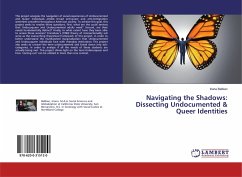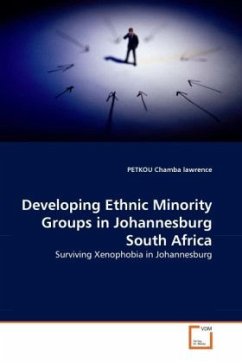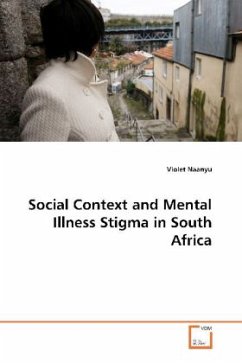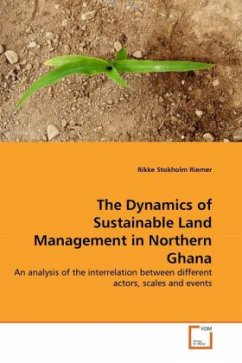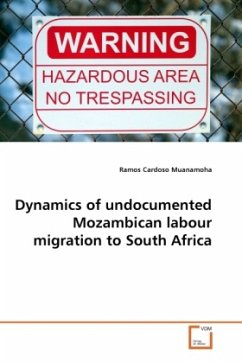
Dynamics of undocumented Mozambican labour migration to South Africa
Versandkostenfrei!
Versandfertig in 6-10 Tagen
79,00 €
inkl. MwSt.

PAYBACK Punkte
0 °P sammeln!
Notwithstanding the controls, undocumented labour migration from Mozambique to South Africa continues unabated and deportations have been taking place almost daily. Hence, administrative measures such as deportations and strict control of borders do not stop the illegal immigration into South Africa. To understand how the undocumented Mozambican labour migration to South Africa happens, in terms of its dynamics, the social capital theory' (particularly the network theory) and theory of cumulative causation' appear to be the most relevant. The resort to the social networks is the main feature o...
Notwithstanding the controls, undocumented labour migration from Mozambique to South Africa continues unabated and deportations have been taking place almost daily. Hence, administrative measures such as deportations and strict control of borders do not stop the illegal immigration into South Africa. To understand how the undocumented Mozambican labour migration to South Africa happens, in terms of its dynamics, the social capital theory' (particularly the network theory) and theory of cumulative causation' appear to be the most relevant. The resort to the social networks is the main feature of undocumented migrants. However, some economic approaches, such as the neoclassical theory' and the theory of 'the new economics of migration' are relevant to understand the causes of migration as well as the migration decision-making process.




